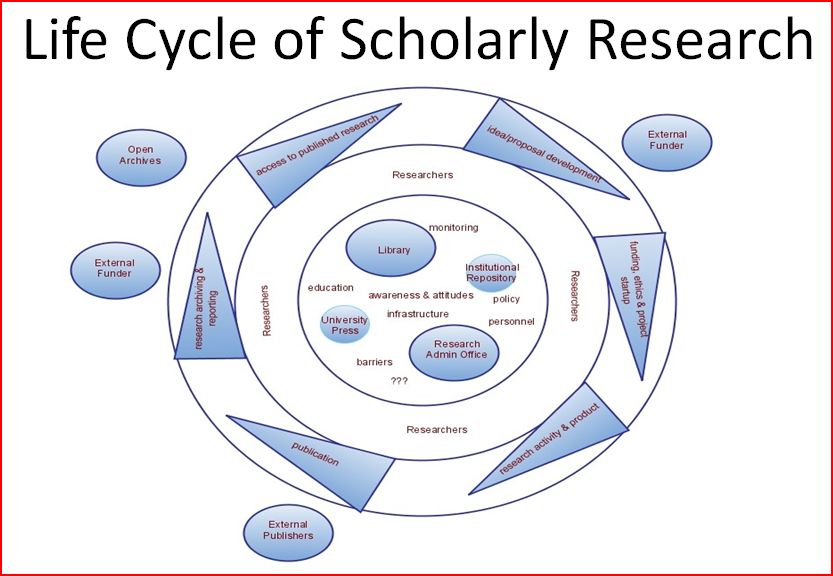Open Access Supports for Researchers in Canadian Universities: The Session Blog
July 9, 2:30 PM – Sauder Industries Room 2270
Presenters
Devon Greyson, Information Specialist with the UBC Centre for Health Services and Policy Research
Donald Taylor, Electronic Resources Librarian at Simon Fraser University
Background
The presentation provided an overview of a recently completed, quantitative study on the compliance of Canadian University libraries, as well as their concomitant research offices, with legislated funder mandates. Canadian research projects must provide open access versions of their findings as a condition of receiving financial support. The two presenters, Devon Greyson and Donald Taylor, outline the model used to determine relationships amongst all relevant parties, the guiding research questions, their methodology, the results and areas that require more investigation.
Session Overview

Devon Grayson at the PKP Conference (with permission)
Devon Greyson began the presentation by providing an overview of the study, which will be available through open access, on funding mandate compliance. Essentially this was a group project that created a common conceptual model of how research works in Canadian universities.
 Scholarly Research Cycle (posted with permission of authors)
Scholarly Research Cycle (posted with permission of authors)
Open access has changed this research model, particularly because of Open Access Mandates instituted by Canadian research funders. The CIHR (Canadian Institute of Health Research) requires open access to peer reviewed articles within 6 months of publication, which places significant “impetus on the researcher” to publish results on line, or else funding will be curtailed. Similar policies in other Canadian organisations in the health sector, such as the Genome Project, are in place.
The Study’s Methodology
The study focussed on Canadian universities as a whole, which was represented by the libraries and research offices of each institution. The researchers used to following questions to guide their study:
(1) Are the various research agencies aware of open access funding mandates?
(2) Do they view the mandates as part of their purview?
(3) What is the extent of coordination between the libraries and research offices at each university?
Although there have been similar studies before, the survey questions used did not suit the Canadian context. Consequently new questions were drafted that applied to the research model above. The study concerned itself only with members of the Canadian Association of Research Libraries (CARL) and separate surveys were given to the respective libraries and research offices involved.
Donald Taylor pic
Overview of the Results

Donald Taylor at the PKP Conference (with permission)
Donald Taylor continued the presentation by reviewing the preliminary results. Surprisingly, only forty eight percent of research administration offices returned surveys, but sixty seven percent of libraries responded. Only thirty seven percent of the universities involved completed both surveys.
Sense of Mandate (posted with permission of authors)
Activity (posted with permission of authors)
Awareness (posted with permission of authors)
The three slides above illustrate that libraries are far more aware of the open access funder mandates than their counterparts. All of the libraries are aware of the mandates, compared to seventy eight percent of research offices. It is clear that libraries have a clearer understanding of their mandate to provide broad education on open access issues, whereas research offices recorded low numbers across the spectrum of questions. Furthermore, libraries were far more willing to engage in open access related activities or plan future endeavours than their research offices. Lastly, sixty percent of universities and research departments were aware of the other’s activity.
Conclusions
The results and responses tend to paint a picture of a lack of coordination and collaboration between two parties, with a few exceptions (some universities planned to include cooperation with other departments). It is also clear that there is an awareness lag between librarians and research administrators. It would seem that the two divisions have different views of their roles with regards to the mandates.
Follow-up Questions
(1) Is there overall compliance with mandates?
(2) Do authors want to participate in OA activities?
(3) How do we change the attitudes of researchers?
Analysis
This study illustrates that there is a distinct lack of understanding and cooperation on behalf of research offices to comply with legislated funding mandates, which explains Geist’s assertion that many universities are agonisingly slow to adopt open access initiatives (2007). These mandates have been instituted to ensure that researchers self archive their work and make it freely available in the associated institutional repository, which benefits the research community as a whole. It would seem that some research is being stalled as a result of a lack of compliance and that many journal publications resent having their economic domains infringed upon.
Related Links
Devon Greyson articles on Scientific Commons
Donald Taylor articles on Scientific Commons
Developments in Canadian Funding Mandates for OA
References
Geist, M. (2007). Push for open access to research . BBC News, Retrieved July 9, 2009, from http://news.bbc.co.uk/2/hi/technology/6404429.stm